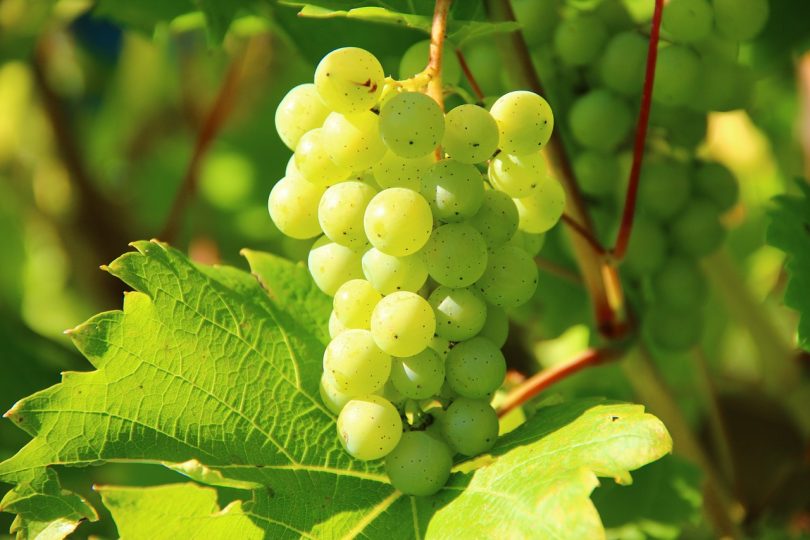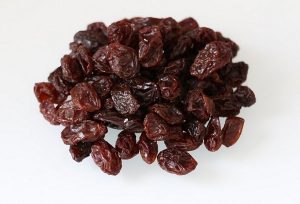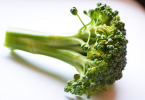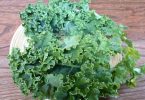Today’s question: can dogs eat grapes? Are grapes good or bad for dogs? Scroll down for detailed answers.
Grapes are a delicious vine fruit that may be eaten either fresh or dried as raisins. Their rich history goes back as far as 8,000 years when they were first cultivated in what is now called the Middle East. Grapes may be used to make jams and wines, or be added to other whole food ingredients to make beauty recipes. Grapes may also be turned into vinegars which are then used in other culinary pursuits.
Nutritionally, grapes are quite a phenomenon. Eating grapes has been proven to reduce the risks of obesity, diabetes, constipation, high blood pressure, allergies and improve our overall mortality. They also contain certain components that given them so-called “super food” status. Grapes also contain a large amount of water, which may help keep your body hydrated in the event extra hydration is needed. In the event of physical exertion, or unusually hot weather, adding grapes to your diet may prevent dehydration and fainting.
Studies conducted across various western countries found that although France consumes higher levels of animal fat than other countries, their rates of cardiovascular disease remain quite low. Many people may attribute the lower rates of cardio vascular disease to the high level of grape consumption in France. The French are known to drink wine and incorporate drinking wine into regular dinners and using wine during meal preparation. The extra wine increases the grape consumption of the French, thereby allowing the French to have the increasing health benefits grape allow.
Although French wine consumption is branding a national stereotype, the branding is largely due to the high consumption of red wine. The phenomenon of a high red wine consumption has been termed the French paradox. So while grapes may be considered a very healthy food source for humans, and particularly those in France, can the same be said for dogs?
Grapes are certainly unnatural to a canine diet, which consists primarily of high protein meats. So there are not really many benefits of giving dog’s grapes (or fruit in general) despite their many benefits to humans. Grapes allow humans the benefits of added vitamins such as vitamin C and a high level of antioxidants. But is it okay to give them a grape every now and then? Can dogs eat grapes?
Can Dogs Eat Grapes and Raisins?
The short answer is absolutely NOT. Studies have shown that grapes can pose a huge threat to the health of your dog. The toxicity of grapes is noted to cause renal failure, which refers to the sudden development of kidney failure. Anuria is also a potential danger. This is the failed production of urine, which can kill a dog. Humans do not face these horrible side effects from the grape, and many are unaware of their existence. In the event a dog parent does not research the act of offering grapes to dogs, one may be completely unaware these side effects even exist. Offering a grape as a treat or as a bit of hydration on a hot day could ultimately cause serious health risks, and even death.
The potential health problems caused by grape consumption in dogs were identified by the Animal Poison Control Center (APCC), which is run by the American Society for the Prevention of Cruelty to Animals (ASPCA). About 140 incidents were noted by the APCC from 2003 to 2004, with 50 of these cases developing the symptoms and 7 actually dying. These symptoms are not exclusively a result of digesting grapes, but it is certain that grapes do produce these symptoms. A small grape may not be enough to bring down a dog and cause death, however, the grape itself can cause the symptoms that will then develop into more serious complications. Raisin and grape consumption among dogs can be fatal indeed, but the mechanism of toxicity is still largely unknown, making for a very difficult approach for the vet when confronted with a sick dog.
The types of grapes inspected in the study were both seeded and seedless, suggesting therefore that it is not the seeds that cause renal failure or anuria. Many times, seeds in fruit and vegetables contain the toxins that harm a dog or cause incredible digestion problems that lead to death. Since the seed of the grape is not technically the toxin, one needed to research further to determine the exact area of toxin that causes harm in dogs.
The mycotoxin within the grape is the aspect that is expected to be at fault, although one has not been found in grapes that have affected dogs. This would be found within the skin of grapes. Nor has a definitive amount of grapes been determined as a level to which dogs can ingest grapes. While the exact location of the mycotoxin has been determined to be in the skin, but set levels of toxin ingestion cannot be determined to be the toxic amount, the studies that have been made show a wide array of answers. It could be a single grape or an entire bunch. One study has suggested that anything more than 3 grams of grapes or raisins can have adverse effects on dogs. The findings of grape toxicity has been across the board and are determined to be reputable, however, this has not been confirmed, nor denied, by the APCC.
Can Dogs Eat Grape-Seed Oil?
The short answer is a cautious yes. Oddly enough, the grape SEED is not toxic to dogs like grape skin and pulp. Grape seed actually contains beneficial ingredients, it is loaded with beneficial Omega-6 fatty acids and other plant components. Grape-seed oil and extract provide stronger teeth and gums, shinier coat, healthier tissues, and reduced risk of cancer and heart disease.
However, you should be cautious when feeding grape-seed oil to your dog. Since grapes are highly toxic themselves, it’s best to watch out when giving grape-seed oil to your pooch. Just to be on the safe side. Give your pooch a little and observe your dog afterwards for any unusual symptoms. Additionally, it’s always recommended to consult with your vet beforehand for expert advice.
Symptoms of Grape Poisoning in Dogs
A telltale sign that your dog has eaten something s/he should not have is diarrhea or vomiting. These signs will develop within hours of ingestion. In the event you think it is possible your dog has eaten grapes or raisins, acute renal failure will develop within 48 hours. With renal failure, which will undoubtedly kill your dog, acting quickly and responsibly is important. You must take a dog suspected of renal failure to the vet immediately. Other symptoms will develop later and these include a general weakness and loss of appetite. Your dog may also struggle to walk or maintain its balance. They will drink more and feel severe abdominal pain.
Watching the behavior of your dog, noting any sudden changes, and keeping an eye out for any gradual changes, may be the key to your dog staying alive and surviving the risk of renal failure. If your dog has eaten grapes without your knowledge, and you find out only after discovering the empty bowl and eaten stems, you should exercise proper caution and bring him/her to the local vet for inspection early. Finding the symptoms early and preventing the symptoms from further expanding will be the most important action to take in preventing an unexpected death.
Here is more information about grape toxicity in dogs, signs, symptoms and solutions:
What is the Toxic Dose of Grapes?
The toxic dose of these fruits is about 0.5 ounces per pound (32 grams of grapes per kilogram) and for raisins it is about 0.18 to 0.48 oz/lb (11-30 g/kg). Many dog owners may be hesitant to weigh their grapes at all, or skipping the weighing of their grapes when making a serving for themselves. This is the fact that may lead to unintentional dog poisoning. When such a small amount is rendered toxic to dogs (unknowingly to many owners) those who have not measured the ounces in which they are giving their dog, may poison the pup by offering a simple ‘treat’ from their snack bowl.
Worse yet, when an owner may suspect the dog of having poisoning from grapes, the owner may be unable to tell the veterinarian how much of the grapes was actually ingested. Given that .5 ounces of toxins are in each pound, most owners have not weighed the grapes and calculated how much toxin has been ingested. The vet would find this information helpful if given in advance. The mathematical breakdown could also prepare the owner in the event time cannot be afforded to be wasted. All information offered to the doctor is deemed valuable.
Treatment
If you find bringing your dog to the vet to be impossible, whether due to lack of a car, your own poor health, or hazards weather, etc., there are some drastic measures you can take. The obvious measure to take is by forcing your dog to throw up the content of its stomach. Just as humans may expel toxins from their bodies, a dog is able to do the same action with the same result. The only trouble is-making your dog’s vomit on queue. If your dog is unconscious, do not induce vomiting as this could result in choking and death. The same should go for if they are weak or having trouble breathing. At this point the dog needs professional medical help and there is little you, as the owner, can do.
A vet will often use apomorphine to get the dog to vomit. While most of us do not keep a stash of apomorphine about the house, you can make your dog vomit by giving it a tablespoon of hydrogen peroxide per pound of body weight. This recipe will force your dog to expel the contents of its stomach. If you are going to do this, you need to do so quickly, as fast as possible after your pooch has ingested the grapes. After this, the best thing is to somehow get your dog to eat some activated charcoal. This will absorb remaining toxins in the gastrointestinal tract and prevent further absorption by the body and prevent acute renal failure.
If your dog does not react to the ingestion of hydrogen peroxide, you need to take it to the vet immediately. Ingestion of grapes or raisins needs immediate attention because the effects are potentially fatal and very fast acting.
When you get to your vet, you will need to provide as much information as possible. Take a sample of the grapes or raisins with you if you can. If your dog has vomited or produced diarrhea, it might be useful to bring a sample of this as well, as it can help the vet to find a diagnosis of the severity of the dog’s condition. Laboratory tests, like a complete blood count or biochemistry profile may produce increased blood calcium. In severe cases, this can lead to hypercalcemia, and higher levels of phosphorous and creatinine, which are both suggestions of the kidney’s functioning status. The presence of glucose or protein in urine may also be an indicator.
When the kidneys fail, the rest of the body soon follows and the dog dies. In some cases, even the swiftest treatment is not enough to save the animals life, but by reacting quickly you can give your dog the best chance of survival. The best thing to do is avoid the situation altogether by keeping your grapes out of harm’s way in the fridge and your raisins locked away in a cupboard. In the event you have a grapevine on your property, and enjoy growing your own grapes, you must be cautious and responsible in this area. Fencing around you grape vines is incredibly important to prevent ingestion of grapes by your dog when you are not looking. In the event you cannot fence the area, be sure to keep an eye on your dog at all times when outside to ensure s/he stays away from the grapevine. Preventing your dog from eating grapes is as important as the treatment of poisoning afterward.
Conclusion
While many fruits or vegetables are highly nutritious and beneficial for dogs, and despite the apparent health benefits they offer our hearts as seen in France, grapes are highly toxic for dogs. There are some areas in which humans and their pets differ, and grape consumption is one of them. Within 48 hours of consumption your dog could die from kidney failure. One of the most worrying facts is the lack of understanding surrounding the toxicity and causes of anuria and acute renal failure. Lack of facts gives vets very little to work with when confronted with a dog poisoned by grapes. This is why a prevention plan and a fast response is so important. If you even suspect your dog has ingested grapes or raisins, you need to either induce vomiting immediately or get them to the vet as soon as you can. Hopefully they will be okay, but your reaction is the first and most important step in ensuring your dog survives.
References:
http://www.petmd.com/dog/emergency/digestive/e_dg_grape_raisin_toxicity
http://www.aspca.org/pet-care/animal-poison-control/people-foods-avoid-feeding-your-pets
https://en.wikipedia.org/wiki/Grape_and_raisin_toxicity_in_dogs











Leave a Comment